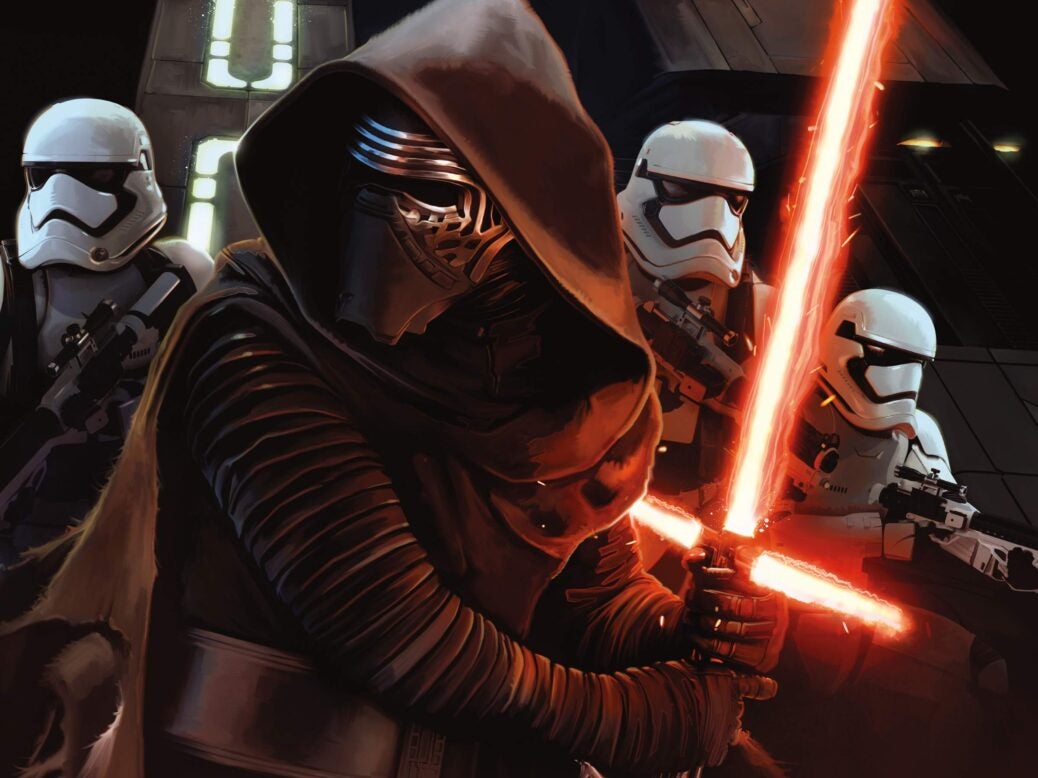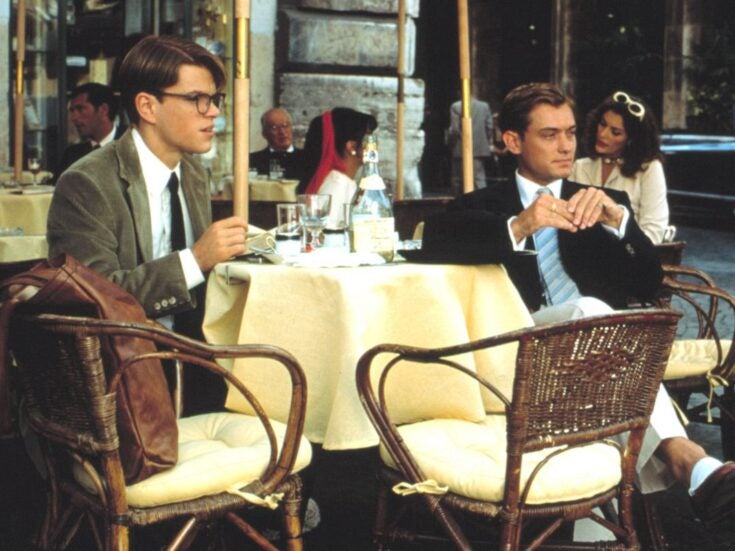
The Force obviously stands for money, says Sam Leith.
No, of course I’m not going to claim it’s some sort of allegory. I mean, that would be ridiculous. It’s a children’s movie: cowboys and Indians in outer space with a gay robot, not one but two cute swing-bins and an ambulant shagpile carpet with a crossbow. It has the same number of levels of meaning as Peppa Pig, say, or the Argos catalogue.
But if I were going to see Star Wars as an allegory — which, as stated, I’m totally not — I suppose I might be tempted to wonder about the Force. I mean: what is this? It’s something that’s invisible and everywhere, that shapes the lives of every living being yet is itself inscrutable, that can be used for either good or evil, that draws power from faith and whose mysteries are available only to, and are jealously guarded by, a select priesthood. What? God? Dear me, don’t be a plank. No: the Force obviously stands for money.
And if we were to follow that line — which, again, we’re not — I might wonder: where do the HNWs fit in? If you were to ask the folk at the Guardian, they’d probably plump without giving it all that much thought for the Empire (or, in the new movie The Force Awakens, the First Order). Because, y’know: the bad guys are better dressed, own all the prime real estate (Death Stars etc), exercise Power with a capital P and are, well, the baddies.
But think on this. What else do we associate with HNWs? Not by and large, it should be said, a great love of the over-mighty state. And the whole point of the Empire is that the state can’t be too mighty. Does it encourage the buccaneering enterprise economy exemplified by smuggler-cum-businessman Han Solo? It does not. Let’s not forget that, through earth history, most rebellions at root have to do with a general disgruntlement about tax (or its extreme forms — feudal serfdom or outright slavery).
It seems perfectly plausible that, shambolic though they may look, the Rebel Alliance are a federation of independent businessmen fed up with monopolistic, complacent and inefficient bureaucracies such as the one that administers the Death Star — which, apart from the whole not-healing-the-sick-but-blowing-up-entire-planets thing, might as well be the NHS. Theirs is a small, bottom-up, disruptive business model — light on its feet and open to using casual labour on a zero-hours basis.
Also consider some of the other aspects of the film. These are not all quite so flattering to our HNW (or wannabe HNW) heroes. It’s said that the way to get a small fortune is to inherit a large one; money tends to run in cliques, gangs and, above all, families. Not, maybe, as meritocratic as we’d like, but an observable truth. Everyone sits on everyone else’s board; Buggins takes over the family business.
In Star Wars, the area of contestation is an entire galaxy. Galaxies are big. Really jolly big: our own is 100,000 light years in diameter. So what do we make of the fact that all the important people in the Star Wars universe are related? Luke is Leia’s brother; Obi-Wan, his next-door neighbour, was Luke’s father’s teacher; Kylo Ren is Luke’s nephew and Han Solo’s son and Darth Vader’s grandson. And if Rey (the spunky Daisy Ridley character) doesn’t turn out to be Luke’s daughter, or similar, I’ll eat my lightsaber sideways.
Small world? You bet. So small, in fact, that — just to take a f’rinstance — if you’re trying to find one little weeble-style rolly-ball droid, the only orange one in the galaxy, apparently, and you escape off a planet, then get captured by the good guys, then get captured by the bad guys, then escape in a stolen tie-fighter, then get shot up and crash back down on to the surface of the planet, you will end up walking distance — walking distance! — from this same droid. It’s as if Tim Peake bailed at random out of the International Space Station and landed not in the middle of the Pacific or, say, a small village outside Lagos, but at the end of his own street.
Or, to put it another way, it’s as if you went out for a big night on the town and ended up — without fail — in Mayfair, Belgravia or South Kensington. Or as if thousands of very wealthy people were figuring out where to domicile themselves for tax purposes and all, completely randomly, hit on Zug or Vanuatu or Liechtenstein. You see where I’m going with this?
But, of course, I’m expressly not going there because Star Wars is not an allegory. It’s a stupid movie. And the only reason for all these bizarre coincidences, it’s reasonable to think, is exactly the one given in the movie: it’s the Force. And though the Force may have all these strange effects on relationships and geography in a completely fictional universe a long time ago and in a galaxy far, far away, money doesn’t work like that at all in the world we inhabit, does it?






